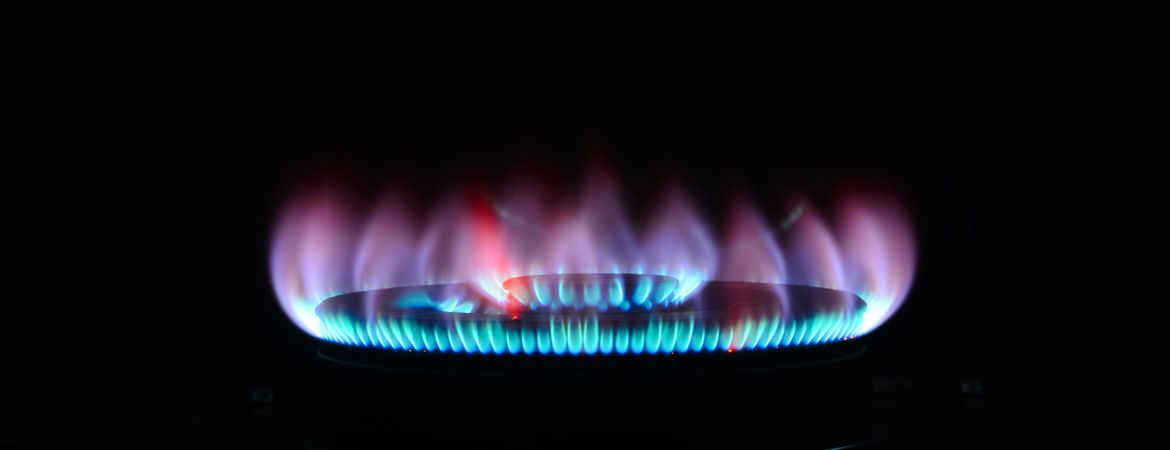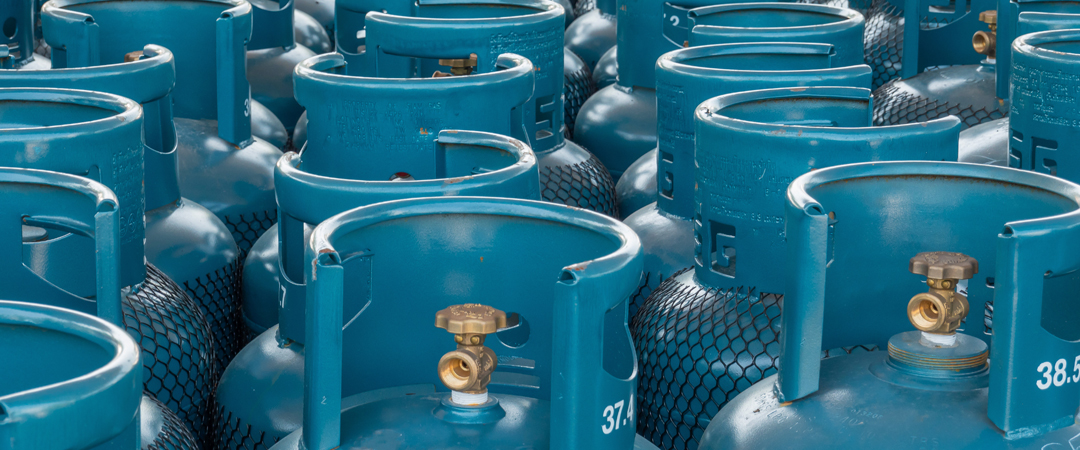
Looking for a way to improve your gas equipment? Upgrading your gas equipment not only enhances its efficiency but also boosts safety. With advancements in technology, there are now various options available that can make your gas equipment more reliable and secure.
By upgrading your gas equipment, you can experience several benefits. Firstly, improved efficiency means lower energy consumption, which ultimately leads to cost savings. Additionally, modern gas equipment is designed to be more user-friendly, making maintenance and operation easier than ever before.
But the most crucial advantage of upgrading your gas equipment is enhanced safety. Outdated or faulty equipment can pose serious risks, including gas leaks and fires. By investing in newer, safer devices, you can minimize the chances of accidents and protect both your property and those within it.
Don’t compromise on efficiency or safety when it comes to your gas equipment. Upgrade it today and enjoy the peace of mind that comes with knowing you have a reliable, efficient, and safe system in place.
The importance of efficient gas equipment
Gas equipment plays a vital role in numerous industries, from manufacturing plants to commercial kitchens. Efficient gas equipment ensures smooth operations and optimal performance. Inefficient equipment, on the other hand, can lead to higher energy costs, increased maintenance needs, and reduced productivity.
One of the main advantages of upgrading your gas equipment is improved efficiency. Newer models are designed to maximize energy usage and minimize waste, resulting in lower utility bills. Whether you’re running a small business or managing a large industrial facility, investing in efficient gas equipment can have a significant impact on your bottom line.
In addition to cost savings, efficient gas equipment also contributes to environmental sustainability. By reducing energy consumption, you’re minimizing your carbon footprint and doing your part to combat climate change. Upgrading to eco-friendly gas equipment not only benefits your business but also helps create a greener future for generations to come.
Upgrading your gas equipment is an investment in efficiency that pays off in multiple ways. From reducing operational costs to supporting sustainability goals, efficient gas equipment is a key factor in achieving long-term success in any industry.
The benefits of upgrading to newer gas equipment
Upgrading your gas equipment comes with a host of benefits that can positively impact your business. From improved performance to increased functionality, the advantages of investing in newer gas equipment are numerous.
One of the primary benefits of upgrading is enhanced performance. Newer gas equipment is designed to be more reliable and efficient, resulting in improved productivity and reduced downtime. Whether you’re operating a restaurant or a manufacturing plant, having equipment that consistently performs at its best can significantly boost your business operations.
Moreover, newer gas equipment often comes with advanced features and technology that offer increased functionality. From programmable settings to remote monitoring capabilities, these features make it easier to control and manage your gas equipment. This level of control not only improves operational efficiency but also provides valuable data for decision-making and troubleshooting.
In addition to performance and functionality, upgrading your gas equipment can also provide access to better maintenance and technical support. Older models may have limited availability of spare parts and limited support from manufacturers. By upgrading to newer equipment, you ensure that you have access to parts, service, and technical assistance when needed, minimizing downtime and maximizing equipment lifespan.
Overall, upgrading to newer gas equipment offers a range of benefits that can positively impact your business. From improved performance and functionality to enhanced support and longevity, investing in newer models is a wise decision that can drive your business forward.

Enhanced safety features in upgraded gas equipment
When it comes to gas equipment, safety is paramount. Outdated or faulty equipment can pose serious risks, including gas leaks and fires. Upgrading your gas equipment not only improves efficiency but also enhances safety through the incorporation of advanced safety features.
Modern gas equipment is designed with safety in mind, utilizing state-of-the-art technologies and materials to minimize potential hazards. One of the key safety features found in upgraded gas equipment is enhanced leak detection and prevention systems. These systems use advanced sensors and valves to detect and prevent leaks, ensuring that gas is safely contained within the equipment.
Furthermore, newer gas equipment often incorporates automatic shut-off mechanisms that activate in the event of a malfunction or abnormal operation. This feature helps prevent accidents by immediately cutting off the gas supply and shutting down the equipment. By investing in upgraded gas equipment, you can significantly reduce the risk of gas-related accidents and protect both your property and the people within it.
Another important safety aspect of upgraded gas equipment is improved ventilation and exhaust systems. Proper ventilation is crucial to ensure the safe release of combustion by-products and prevent the buildup of harmful gases. Upgraded equipment is designed to provide efficient ventilation, ensuring that indoor air quality remains at safe levels.
By upgrading your gas equipment, you’re taking proactive measures to provide a safer working environment. The incorporation of advanced safety features not only protects your assets but also safeguards the well-being of your employees and customers. Don’t compromise on safety when it comes to your gas equipment; upgrade to newer models and experience the peace of mind that comes with knowing you have a secure system in place.
Improved energy efficiency and cost savings
Energy efficiency is a key consideration for any business, and upgrading your gas equipment can have a significant impact on your energy consumption and costs. Newer models are designed to maximize energy usage and minimize waste, resulting in lower utility bills and long-term cost savings.
Upgrading to more energy-efficient gas equipment can lead to substantial reductions in energy consumption. These upgraded models utilize advanced technologies, such as improved insulation and high-efficiency burners, to optimize fuel usage. By minimizing heat loss and ensuring efficient combustion, these models can significantly reduce energy waste and lower your energy bills.
In addition to direct cost savings, improved energy efficiency also contributes to a greener and more sustainable business. By reducing your energy consumption, you’re minimizing your environmental impact and conserving natural resources. This not only benefits the planet but also enhances your brand’s reputation as an environmentally responsible business.
Furthermore, upgrading to energy-efficient gas equipment may also make you eligible for various incentives and rebates offered by government agencies and utility companies. These financial incentives can further offset the cost of upgrading and provide additional savings in the long run.
When considering the potential cost savings of upgrading your gas equipment, it’s essential to evaluate the payback period. While upgrading may require an upfront investment, the long-term energy savings can often outweigh the initial costs. By calculating the payback period and considering the potential return on investment, you can make an informed decision about upgrading your gas equipment and reap the financial benefits in the years to come.
Factors to consider when upgrading gas equipment
When it comes to upgrading your gas equipment, several factors need to be taken into consideration to ensure a successful transition and maximize the benefits of the upgrade.
Firstly, it’s important to assess your specific needs and requirements. Different industries have varying demands, and not all gas equipment is suitable for every application. Consider factors such as the type of gas required, the volume of gas consumption, and any specific regulatory or safety requirements that may apply to your industry.
Secondly, evaluate the available options and technologies. Research and compare different models and manufacturers to find the equipment that best fits your needs. Consider factors such as energy efficiency ratings, safety features, ease of maintenance, and warranty terms. Gathering as much information as possible will help you make an informed decision and select the gas equipment that offers the most value for your investment.
Thirdly, consider the installation and compatibility requirements. Upgrading your gas equipment may require modifications to your existing infrastructure, such as gas lines or ventilation systems. Ensure that the upgraded equipment is compatible with your current setup or plan for necessary modifications to avoid any operational issues or delays.
Additionally, it’s crucial to factor in the total cost of ownership when evaluating your options. While upfront costs are an important consideration, it’s equally important to consider long-term maintenance, operational costs, and potential savings in energy consumption. Assess the total cost of ownership over the expected lifespan of the equipment to get a comprehensive understanding of the financial implications of the upgrade.
Lastly, don’t forget to consult with experts in the field. Gas equipment suppliers or professional technicians can provide valuable insights and recommendations based on their expertise and experience. They can help you navigate the various options available, assess your specific needs, and ensure a smooth transition to upgraded equipment.
By considering these factors and taking a systematic approach to upgrading your gas equipment, you can make a well-informed decision that aligns with your business goals and maximizes the benefits of the upgrade.
Choosing the right supplier for gas equipment upgrades
When upgrading your gas equipment, choosing the right supplier is crucial to ensure a successful transition and long-term satisfaction with your investment. Here are some key factors to consider when selecting a supplier for your gas equipment upgrades.
Firstly, reputation and experience matter. Look for suppliers with a proven track record in the industry and a history of delivering high-quality products and services. Research their reputation, read customer reviews, and ask for references to gauge their reliability and professionalism.
Secondly, consider the range of products and brands offered by the supplier. A reputable supplier should offer a wide selection of gas equipment options from various manufacturers, allowing you to choose the equipment that best fits your needs. A diverse product range indicates a supplier’s commitment to meeting customer requirements and staying up-to-date with the latest industry developments.
Thirdly, assess the supplier’s technical expertise and support capabilities. Upgrading gas equipment often involves complex installations and configurations. Ensure that the supplier has a team of experienced technicians who can provide installation, maintenance, and repair services as needed. Prompt and reliable technical support is essential to ensure smooth operations and minimize downtime.
Additionally, it’s important to consider the supplier’s commitment to safety and compliance. Gas equipment is subject to various safety regulations and certifications. Ensure that the supplier complies with all relevant standards and can provide the necessary documentation and certifications for the equipment they supply.
Lastly, evaluate the supplier’s pricing and after-sales support. While cost is an important consideration, it should not be the sole determining factor. Look for suppliers who offer competitive pricing without compromising on quality or service. Additionally, inquire about their warranty terms, spare parts availability, and overall customer support to ensure that you will receive ongoing assistance and value after the purchase.
By carefully evaluating these factors and selecting a reputable supplier, you can ensure a smooth and successful upgrade of your gas equipment. A reliable supplier will not only provide high-quality products but also offer the necessary support and expertise to maximize the benefits of your investment.

